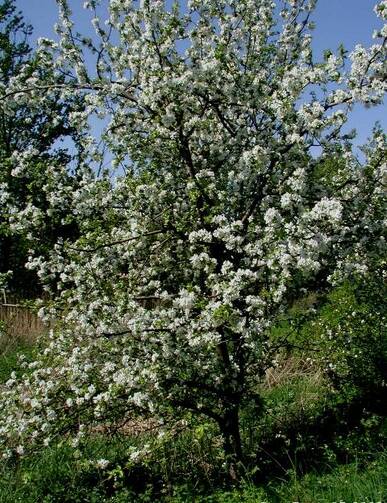We plant the seeds that one day will grow. We water seeds already planted, knowing that they hold future promise.
-From a prayer written by Oscar Romero
On a wall of the main building here at Xavier, halfway up a large staircase, Romero's words greet students and faculty. They are engraved upon an image of a tree, and I walk by this sliver of spiritual wisdom on my way to teach a freshman course called Foundations of Faith.
Romero, of course, is talking about the Kingdom of God and the work of the Church, and his words call to mind Jesus’ parable of the Sower. But in a Catholic school, where faith and the Gospel mystically nourish all we do, it's natural to reflect upon Romero’s words in light of our work on campus. Lately, as I've rushed up the stairs and past the quotation, I've started thinking more carefully about the implications of the prayer, approaching it more intentionally and less reactively. What is the role of the educator in the context of Romero's image? If we assume his metaphor applies to the ministry of schools, what insights does it yield?
Of many that could be discussed, my mind returns to one in particular.
Thinking of education in terms of planting seeds invites me to pray for a saintly kind of patience. I must be careful not to demand immediate feedback, either concerning the quality of my teaching or the material being taught. The early growth of a seed, it's helpful to recall, occurs below the surface, invisible to casual observation. Something similar happens in education. The impact of a reading or lesson might not be immediately apparent. The equations I explain or the texts I elucidate may produce only puzzled looks or blank stares. But this is no time to uproot or replant. Just beneath the soil, good things could be underway.
A few years ago, for example, when I taught Scripture, my students and I discussed Jesus's exhortation to the rich young man to sell all his possessions and follow Jesus. As we talked about those verses, my students remained quiet. They seemed bored or confused. I continued to ask questions but got nothing in return. Did they not care? Did they not understand?
Later that day, a few hours later, one of my students knocked on the door of the faculty lounge. She had a Bible in hand, and she wanted to chat about the rich young man. She was disturbed by the ramifications. For the rest of the day following class, she had ruminated over the verses. Are we to sell everything? Are we to have no security at all? Her questions led to a 45-minute conversation about wealth and discipleship, and about what Jesus’ words might mean for her.
The reading, I realized, had moved her deeply. It had provoked her own philosophical inquiry. But she needed time to express it, time to unwind her tangled thoughts. A few hours earlier, when we first addressed the passage in class, she wasn't ready, and my continued questioning was not helpful.
In her case, it took a few hours, but at other times, it could be days, even years. The period beneath the soil, the period of germination, may extend long after a student graduates. When that knowledge will fully mature a teacher might never know. As Stanley Fish once wrote:
If a waiter asks me, “Was everything to your taste, sir?”, I am in a position to answer him authoritatively (if I choose to). When I pick up my shirt from the dry cleaner, I immediately know whether the offending spot has been removed. But when, as a student, I exit from a class or even from an entire course, it may be years before I know whether I got my money’s worth, and that goes both ways. A course I absolutely loved may turn out be worthless because the instructor substituted wit and showmanship for an explanation of basic concepts. And a course that left me feeling confused and convinced I had learned very little might turn out to have planted seeds that later grew into mighty trees of understanding.
Fish is right. It's tempting for teachers to seek an instantaneous response. We hate to think our work will take many years to be validated. But we are called, we must remember, in light of the Kingdom. We teach always for the future promise, for the formation of our students and not our own glory.









Jasmine, thanks for clarifying. I was not aware that it was misattributed to Romero.